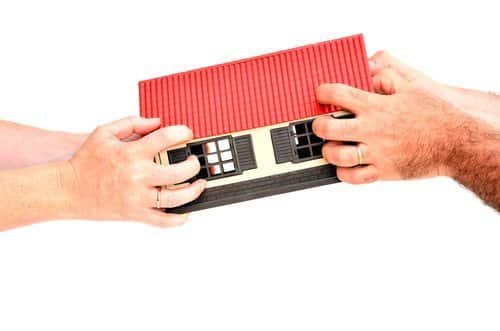Part of what we do as Charleston divorce lawyers are file and serve lawsuits. This article explains the process for beginning a lawsuit and what to do if you are served with a Summons and Complaint in South Carolina.
Serving the Lawsuit in South Carolina?
Most civil cases and family court cases begin with a party (usually referred to as “plaintiff”) filing a Summons and Complaint with the County Clerk of Court. The plaintiff then “serves” the Summons and Complaint on the other parties in the case (often called the “defendants”). Serving a lawsuit in South Carolina is known as “service of process.” There are several ways to “serve” a lawsuit or divorce papers in South Carolina. A plaintiff can hire a person called a process server to personally deliver the papers to the defendant. This delivery can also be made by a deputy from the Sheriff’s Office. This delivery can be made by handing the papers directly to the person, dropping them at the person’s feet, or even leaving them at the person’s home with a person of “suitable age and discretion.” There is no clear answer to what “suitable age and discretion” means, but it can be someone less than 18 years of age. So, if your 14 year-old child was handed papers at your house, you shouldn’t assume that service is bad. Service on a defendant that is a business can be made on one of several people, which can include owners, managers, or even certain employees.
Service can also be made by certified mail. The mailing should be marked as restricted delivery so that only the defendant can sign for it, but sometimes the post office allows for someone else to sign.
Service can sometimes be made by publishing notice of the lawsuit in a local newspaper. Service by publication is normally only allowed if the defendant can’t be served by other means. So, if a defendant dodges process servers or ignores a notice to pick up certified mail at the post office, that person may end up getting served by newspaper publication. In this instance, the defendant may not even know that he or she was served and may lose the case by default. Rarely does dodging service of process help the defendant.
What to Do After You’ve Been Served with a Lawsuit in South Carolina?
If you are served with a Summons and Complaint, you generally have 30 days to respond. You should read all of the papers very closely to look for exact deadlines or court notifications. When reading the papers, you should try to stay relaxed. It is rare that a client brings us papers where the client agrees with everything they say. Also, there may also be things requested in the papers that get you upset. For example, most of our divorce clients are shocked to see that their spouse is asking that they pay for the other side’s attorney’s fees. While this request may be a valid one depending on your situation, it is nothing to be shocked about. In fact, nearly every Complaint filed by every family court lawyer in South Carolina asks for attorney’s fees. So, this is prime example that suggests to not get worked up until you receive legal advice.
You should schedule a consultation with a lawyer immediately. Even people who believe they can represent themselves should have this consultation. Paying for an hour of a lawyer’s time will likely be inexpensive compared to the benefits of learning a bit about the process, the law, and certain pitfalls. We recommend not talking to anyone, especially the other side, until after you have had this consultation.
In many cases, you will decide that you do need a lawyer for the case. If this happens, the lawyer will often give the client a little “homework” so that the client can start helping his lawyer learn about the case. There are too many different types of cases to go further than urging a person served with papers to consult with an attorney.
What Happens if I Don’t Respond to the Complaint?
Most family court cases and most civil lawsuits allow for 30 days to answer the Complaint. If a person does not do so, then the person might be held in “default” by the court. Being in default might mean that the other side wins automatically. Find out what your deadline is, and don’t ignore it.
Sometimes, especially in family court cases, there is an initial court hearing already set. This court hearing can be less than 30 days away, sometimes even the next morning! Every once in a while we have a client meet with us because that client believes that he might be served with papers sometime in the future, and he or she wants to go ahead and have a lawyer on board to start preparing so that he is not under the gun if he is later served with papers.
Are There Other Types of Papers to Look For?
The Summons and Complaint is the most frequently used document to begin a court action, but there are many other papers to be aware of as well. Different types of papers include: Writs, Petitions, Rules to Show Cause, Motions, and Subpoenas. Basically, if you are handed papers by a stranger, read them closely and seek legal advice.












